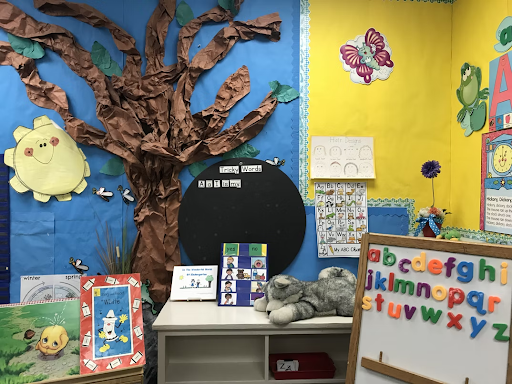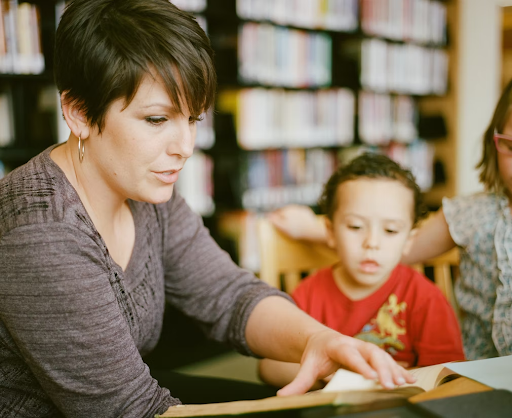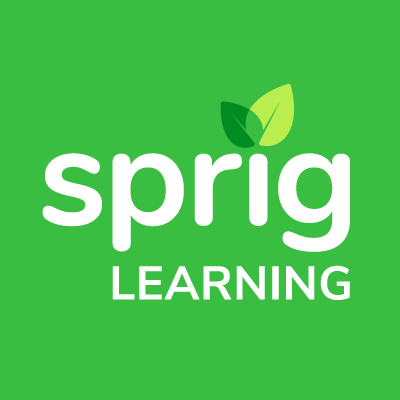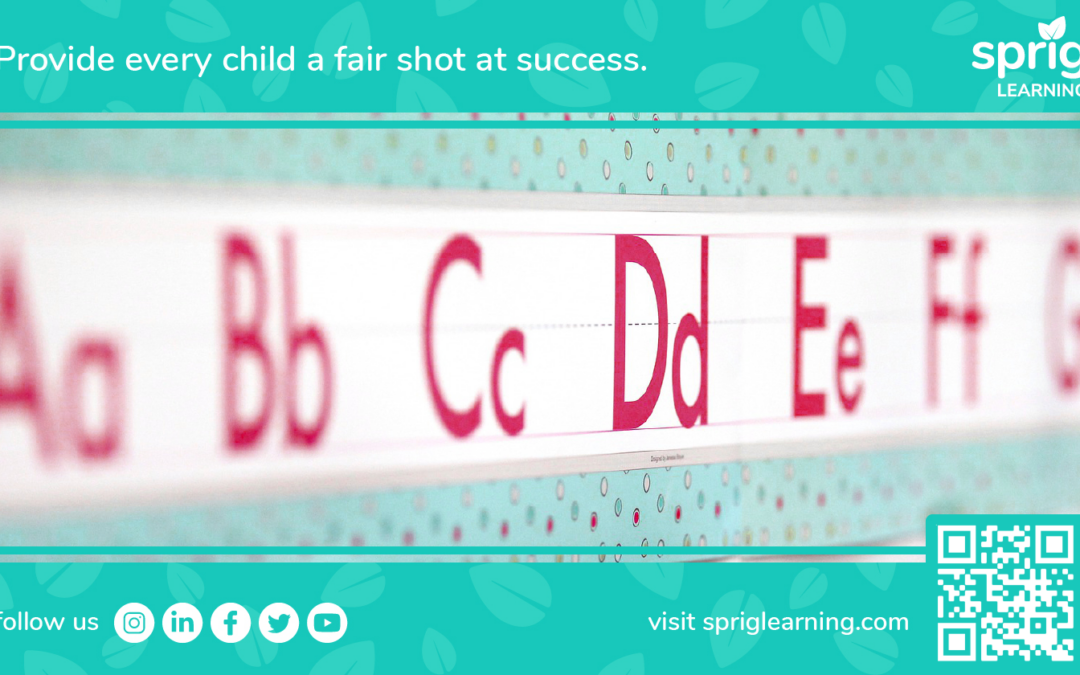Primary school teachers (or elementary teachers) are the heart and soul of early literacy efforts in schools.
Not every school has the necessary budget for a specialist literacy role, such as a coach or a consultant, but they all have homeroom teachers in preschool, Kindergarten and the early elementary grades. These teachers are responsible for teaching all the core subjects, which includes oral language, reading and writing.
Therefore, they have immense influence on the early literacy outcomes of their students. They set up the environment, plan the lessons, and use their knowledge and experience to teach the language arts curriculum.
Elementary school teachers need support given the additional work, besides actual teaching, that they do in their busy daily schedules. Also, there are other challenges at play, such as the lack of professional development and resources, which can impact teachers. Sprig has written about such endemic challenges and presented various solutions to them.
Recently, there is more awareness about the immense value of early literacy. Studies continue to be published from various states showing that roughly a third of all K-2 students are missing early literacy benchmarks.
It’s a collective responsibility to ensure that the early literacy experience for children is optimized. Apart from parents, teachers spend the most time with kids in their daily lives during the school year. Their role in young students’ early literacy development is paramount to student success.
This article, Part 3 in our series, is dedicated to classroom teachers in early elementary grades who have a permanent seat at the early literacy dream team table. (Read Part 1 and Part 2.)
How Elementary School Teachers Play Their Part in Early Literacy

Elementary teachers’ knowledge of foundational literacy skills is critical to the success of grade-level literacy achievement. In a meta-analysis of 20 empirical studies on the impact of teacher preparation and training programs, it was found that such programs increased teacher’s knowledge of the Science of Reading, which resulted in successful reading outcomes for their students. Teachers who applied the learned skills under expert guidance demonstrated the largest growth in teacher knowledge. This is a testament to the type of fruitful collaboration that can happen between reading coaches and teachers.
Indeed, one of the greatest roles of elementary and primary school teachers is to coordinate with others regarding the needs of the child. It can involve keeping parents in the loop to encourage active participation, and referring to specialists like speech language pathologists as necessary.
It’s often the teacher who determines the next step for the student. Besides being adequately versed in the application of the Science of Reading and coordinating with other teachers and staff, how does a classroom teacher make a daily impact for optimum reading success?
We outline 5 critical teacher responsibilities below which, if performed well, lead to desirable early literacy outcomes.
1. Creating a Print-Rich Environment
Early learners need access to books, writing materials and signs in the classroom to motivate them to practice literacy. The teacher creates their own and buys many supplies, sometimes even out of their own pocket, if they feel that the learning environment requires it.
Children need to see uses of literacy around them in order to try it for themselves. A big part of this is having a print-rich environment. High-quality early learning materials are needed such as decodable texts and leveled readers. Concepts of Print is important enough to be recognized as one of the 8 foundational pillars of early literacy success.
2. Developing a Positive and Nurturing Relationship
For early learners in school, their teacher is often their first point of contact when problems arise or when they want to express themselves. Thus it’s important for teachers to be understanding of their current needs and interests, and sensitive to their current level of language development.
Teachers are entrusted with building one-on-one relationships with their students to support their oral literacy development. It’s the first step of many in the road to reading proficiency. Oral language is one of the recognized foundational skill sets in early literacy.
3. Making Learning an Interactive Experience
In the early years, it’s important to make learning a two-way experience, where the teacher models speaking, reading and writing behaviors, and the students reciprocate. Teachers are there to talk to, play with, sign to and partake in other early literacy activities. It’s usually the teacher that commands the room, and they direct what should be done.
Teachers are amazing in that they have so many interactive activities to teach important concepts and skills to their students. Shared reading in the classroom is especially important, as it also has its own category in the foundational skill sets needed for reading success.
4. Differentiating Instruction for Students
On average, there are 22 students in a self-contained classroom in the US. It’s highly unlikely that all 22 students are on the same wavelength when it comes to learning everything in the curriculum.
Some students may need more work on a certain topic, while others may cruise ahead only to stumble upon a future lesson/skill. It’s the teacher’s job to vary teaching strategies according to the needs of students. The Unrivaled Miniguide to Introducing Differentiated Instruction in Early Learning is a must-read for using targeted learning in an early literacy context.
5. Being Culturally Responsive
Classrooms are increasingly diverse in North America, reflecting a wide variety of backgrounds, cultures and languages. It’s important to feel supported in one’s first language, in order for students to succeed in English-language acquisition.
Elementary teachers have a huge role to play in embracing the child’s culture and language, so they feel comfortable enough to open up to learning a new language. Indeed, studies show that bilingual assessment and teacher-training programs on cultural responsiveness have led to significant increases to teachers’ self-efficacy for early literacy instruction.
It’s clear the teachers are ready to do their best, and they know exactly where they need help in order to best serve their students.
Priorities Going Forward- How to Best Help Elementary Teachers

Classrooms are set to get more diverse with students from different backgrounds and of different abilities. Calls in many states to incorporate the Science of Reading in instruction are becoming more common, as the right approach to teaching reading gives every student an equal chance to succeed.
But whether they ultimately succeed depends on what happens in and out of the classroom. In classrooms, elementary teachers will require a thorough knowledge based on early literacy instruction.
As demonstrated in this article, primary classroom teachers are already engaged in wonderful initiatives and efforts on a daily basis to improve literacy scores. With greater organization and guidance on each task, their efforts can be better aligned with the Science of Reading.
Sprig Learning is extremely passionate about literacy equity. We have written extensively on this subject before, highlighting obstacles which exist such as bias, and espousing numerous solutions such as inclusive early intervention.
We have recently partnered with Joyful Literacy Interventions to develop Sprig Reading, a proven Science of Reading-backed early literacy teacher app.
It’s our most powerful and comprehensive solution to date, to achieve early literacy for all. See what it’s all about, and feel free to join the waitlist by scrolling to the bottom of the page.

